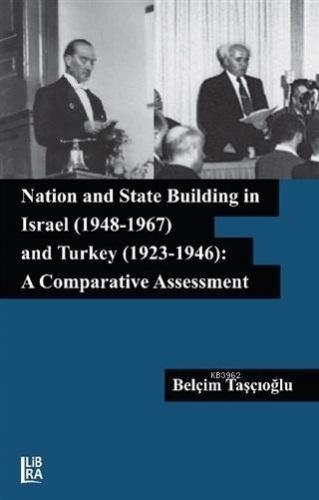9786052380284
605896

https://www.hesapli24.com/nation-and-state-building-in-israel-1948-1967-and-turkey-1923-1946-a-comparative-assessment
Nation and State Building in Israel (1948-1967) and Turkey (1923-1946): A Comparative Assessment
33.75
Why the state founders of Israel and the Turkish Republic, despite being mostly secular and looking initially to create a secular state, chose to integrate religion into the state sphere by incorporating religious institutions into the state apparatus? Part of the answer relates to the objective of achieving national homogeneity, as one of the striking similarities between the two countries. The state elite in both countries encountered the same urgent issue after declaring independence – the formation of a national unity. This book makes a comparison of the relationship between the state, religion and nationalism in the State of Israel and the Republic of Turkey during their state-building processes. Existing literature analyzing the relationship between the state and religion in Israel and Turkey reveals that both have been conceived as secular, democratic, modern states, and Israel can be put forward as exceptional case in the Middle East. That said, there is a need to include the issue of secularism in the national, historical contexts of both states to gain a better understanding of the issue. To this end, this book delineates the similar and different paths followed by the State of Israel and the Republic of Turkey concerning their experiences with secularism, and argues that, contrary to general assumptions that emphasize their uniqueness in the region; the two share various similarities and indeed are not unique.
Why the state founders of Israel and the Turkish Republic, despite being mostly secular and looking initially to create a secular state, chose to integrate religion into the state sphere by incorporating religious institutions into the state apparatus? Part of the answer relates to the objective of achieving national homogeneity, as one of the striking similarities between the two countries. The state elite in both countries encountered the same urgent issue after declaring independence – the formation of a national unity. This book makes a comparison of the relationship between the state, religion and nationalism in the State of Israel and the Republic of Turkey during their state-building processes. Existing literature analyzing the relationship between the state and religion in Israel and Turkey reveals that both have been conceived as secular, democratic, modern states, and Israel can be put forward as exceptional case in the Middle East. That said, there is a need to include the issue of secularism in the national, historical contexts of both states to gain a better understanding of the issue. To this end, this book delineates the similar and different paths followed by the State of Israel and the Republic of Turkey concerning their experiences with secularism, and argues that, contrary to general assumptions that emphasize their uniqueness in the region; the two share various similarities and indeed are not unique.
Yorum yaz
Bu kitabı henüz kimse eleştirmemiş.











